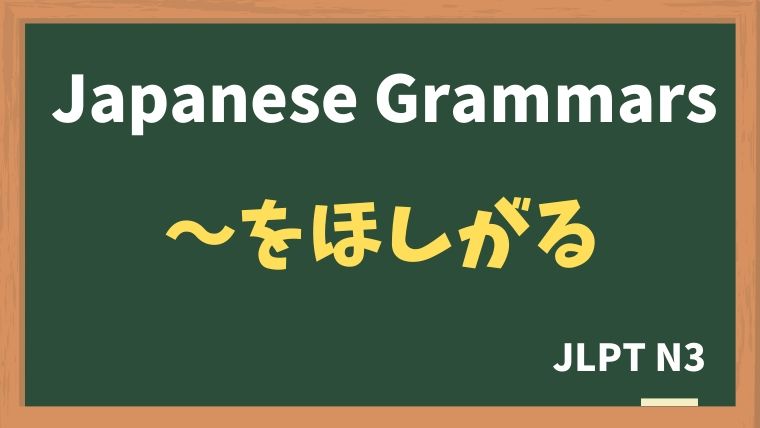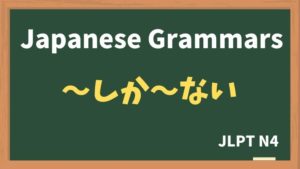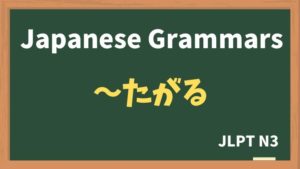
Explanation:〜をほしがる
fa-check-circleMeaning
"a third person wants Noun"
Used to express the desires of a third person.
It is derived from the adjective "ほしい" (want/desire), but when describing someone else's desire, "がる" is added to create "ほしがる."
fa-check-circleForm
N + をほしがる
fa-check-circlePoints
- Subject: The subject of the sentence is someone other than the speaker (or the person the speaker is quoting).
- Object: The thing that is desired is marked by "を."
- Verb Conjugation: "ほしがる" behaves like a typical Japanese verb and can be conjugated into different tenses (e.g., past, negative).
fa-check-circleJLPT Level
N3
Sample sentenes
息子はゲーム機よりもスマホを欲しがっています。
My son wants a smart phone more than a game machine.
娘は新しいおもちゃを欲しがっています。
My daughter wants a new toy.
トムさんは彼女を欲しがっています。
Tom wants a girlfriend.
赤ちゃんがミルクを欲しがっているようです。
My baby looks like he wants milk.
キムさんは日本語の練習のために日本人の友達を欲しがっています。
Kim wants Japanese friends to practice Japanese with.
彼は新しい車を欲しがっている。
He wants a new car
Vocabulary
| Japanese |
English | |
| 息子 | むすこ | son |
| ゲーム機 | ゲームき | gaming device |
| 彼女 | かのじょ | girlfriend |
| 赤ちゃん | あかちゃん | baby |
| 練習 | れんしゅう | practice |






